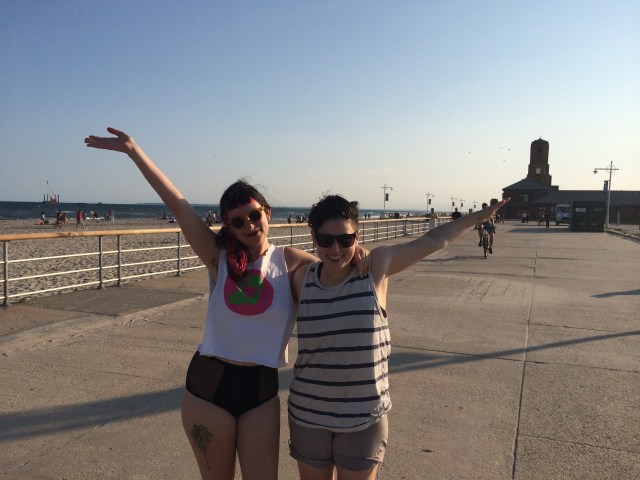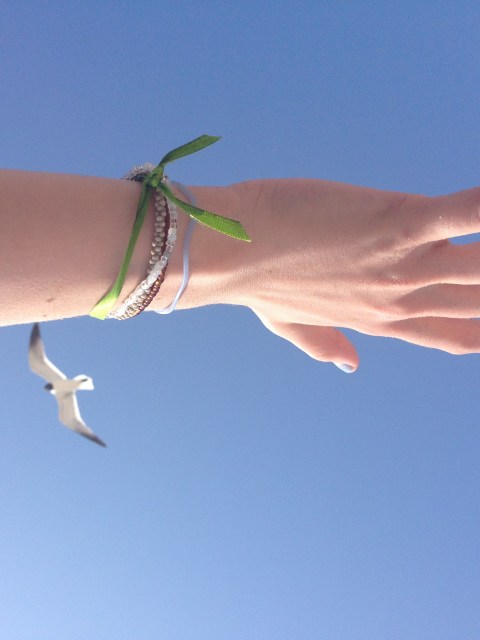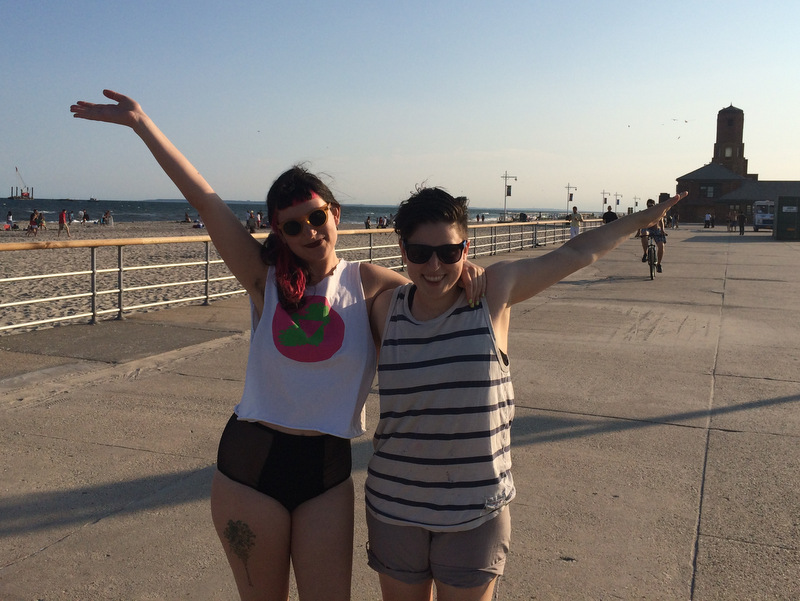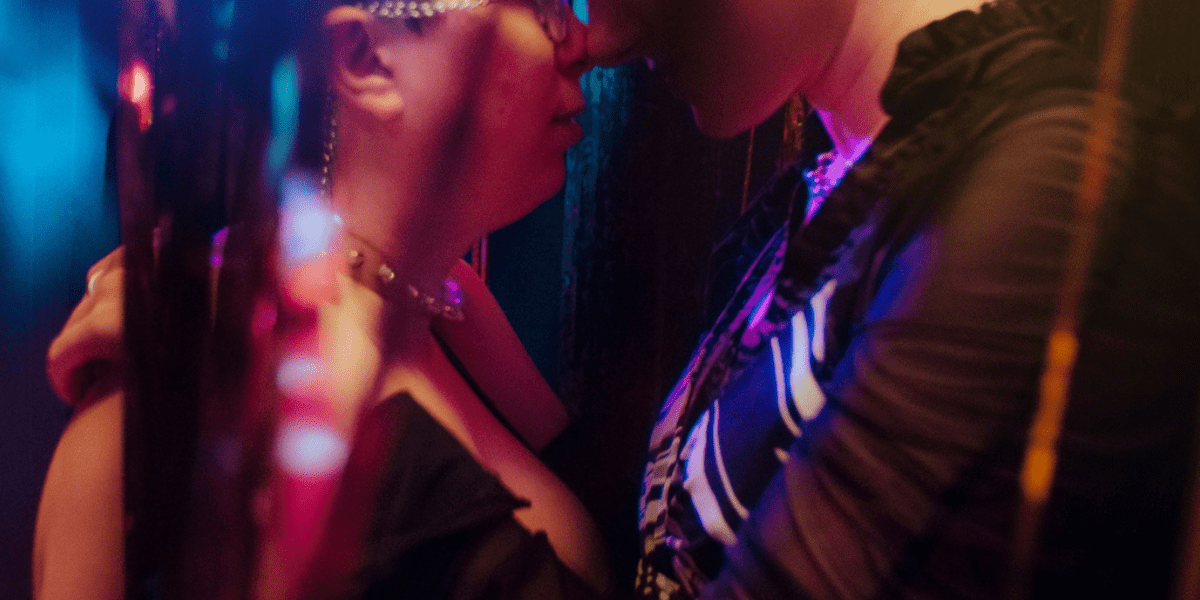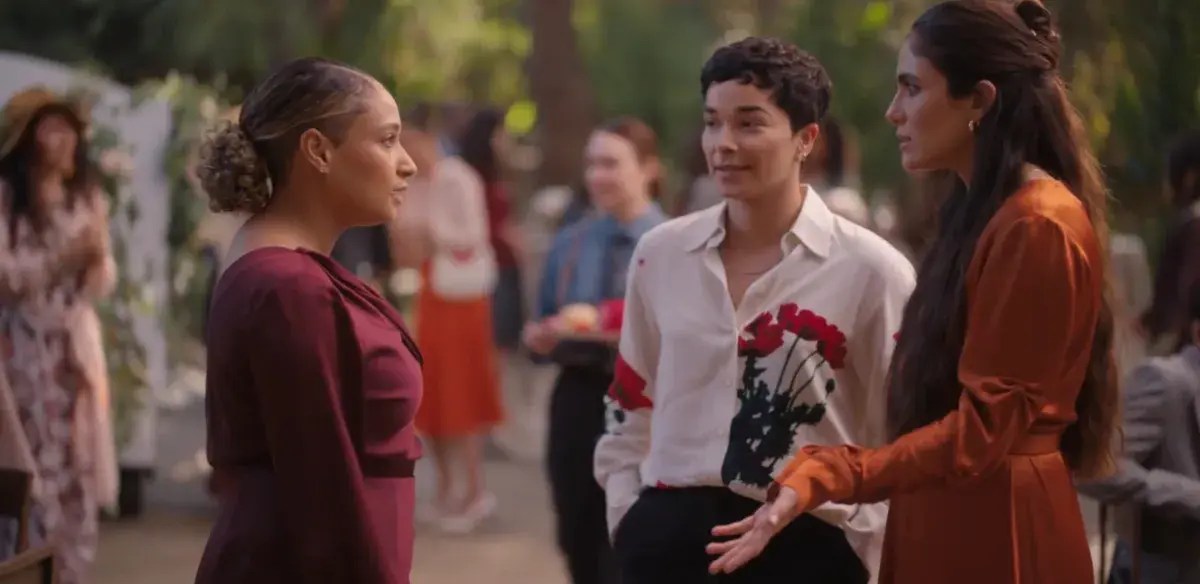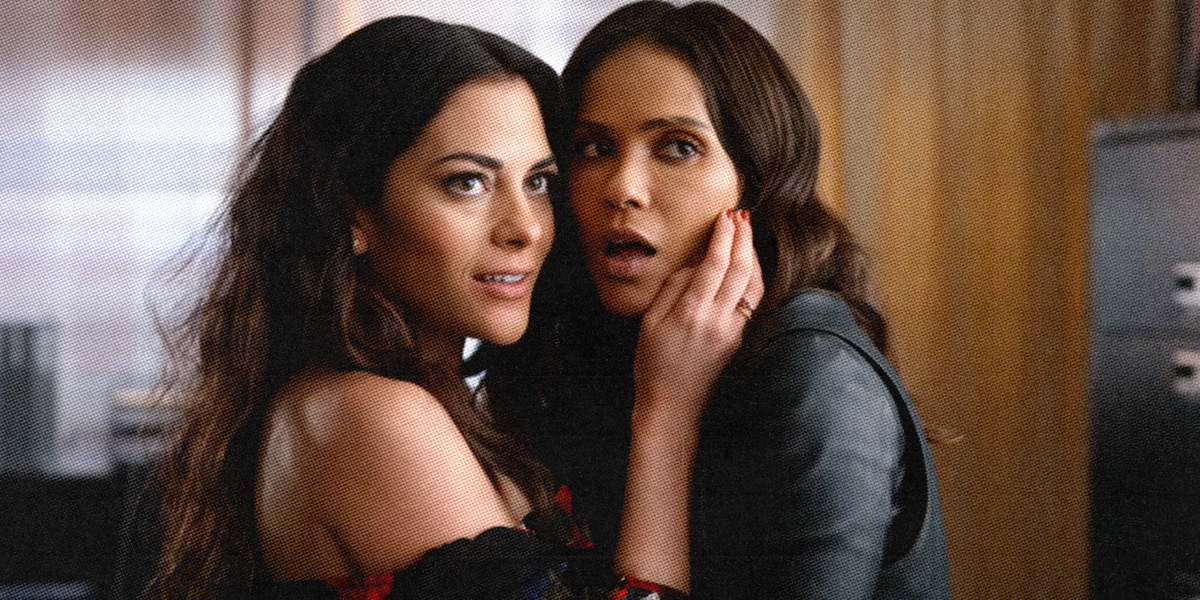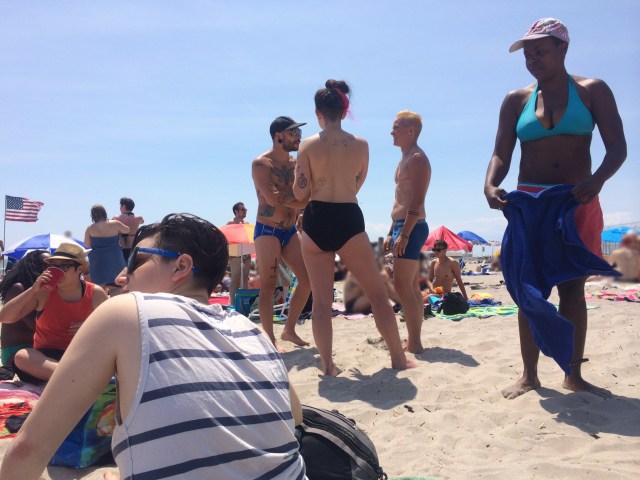
June in New York City signifies the beginning of many things: baking concrete, sweaty brows, strenuous subway walks, New Yorkers that somehow make the heat look effortless in their shorts and sundresses (I don’t understand you, but I APPRECIATE you), birthday season for all the tender Geminis and Cancers in your life (hey, what’s up) and, coinciding with the national tradition, Pride.
New York Pride is, as in most cities, actually a month long celebration consisting of many, smaller, community events. I would be remiss if I didn’t mention things like borough and neighborhood specific events (Brooklyn Pride, Bed-Stuy Pride, Staten Island Pride, etc.), The New York City Drag March, Trans Day of Action, Dyke March, and dozens of independent events organized by activists and artists all over New York City.
However, the Official NYC Pride sanctioned festivities (yes, OFFICIALLY sanctioned– fun fact: Heritage Pride technically retains exclusive trademark over the term “NYC Pride”) take place during one weekend towards the end of June, culminating in The Pride March, which is commonly referred to as The Pride Parade. The Pride March is a massive event that runs dozens of blocks down Manhattan’s Fifth Avenue, has boasted attendees of over 1.5 million, and is generally what people in New York mean when they ask me if I’m “going to Pride.”
Here’s the answer: NOPE. I didn’t go to Pride. I went to the beach. I went to the beach and had a magical time and it was exactly what I needed to do. Did you go to Pride and have a magical time and it was exactly what you needed to do? That’s totally cool! I didn’t. I don’t know if I mentioned this, but I actually went to the beach that day
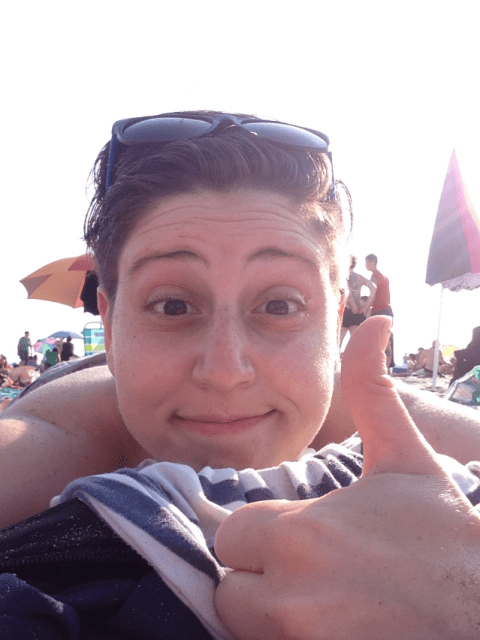
Every year, a small group of queer people gather on Riis beach as an alternative to NYC’s Pride March. There are a number of reasons that people choose to spend the day this way. The Pride March is too large, overwhelming, mainstream, or corporate; people don’t find their identities, body types, or needs are represented there. Riis Beach (Jacob Riis Park) is a historical place of significance for the NYC LGBTQ community (I could write an entirely separate piece about that, but trust me). Some people just like the beach (who doesn’t like the beach?).
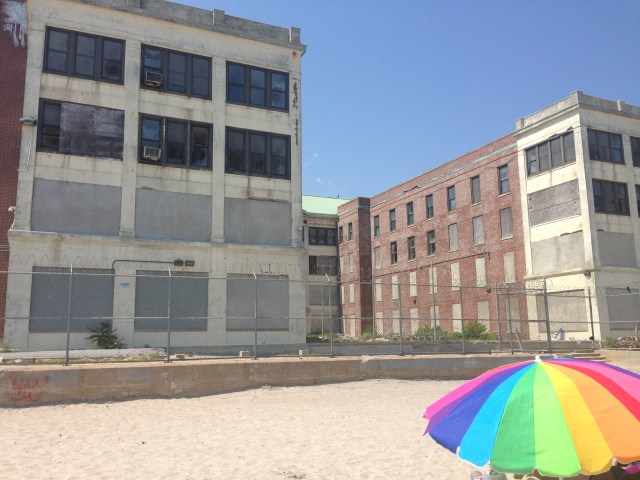
For me, it’s a little bit about feeling overwhelmed by the larger event, sure. I have an anxiety disorder, I don’t revel in large crowds and it’s true that I don’t always feel represented at the larger event. I often feel ambiguously out of place, like I don’t fit squarely under any of the letters in the LGBT acronym or on anybody’s float (I totally feel fine about fitting squarely under a beach umbrella or eating anybody’s chips, don’t worry).
Mostly though, it’s political. We lay on the beach and we talk to each other and make space for each other, literally and figuratively and it feels constructive. A focus on personal wellbeing, body positivity, solidarity between and overlapping of various identities: these things feel like radical principles to me, and prioritizing them on a day that we find complicated, feels important. Like, more important than eating-soft-serve-in-the-ocean-when-you-are-high important
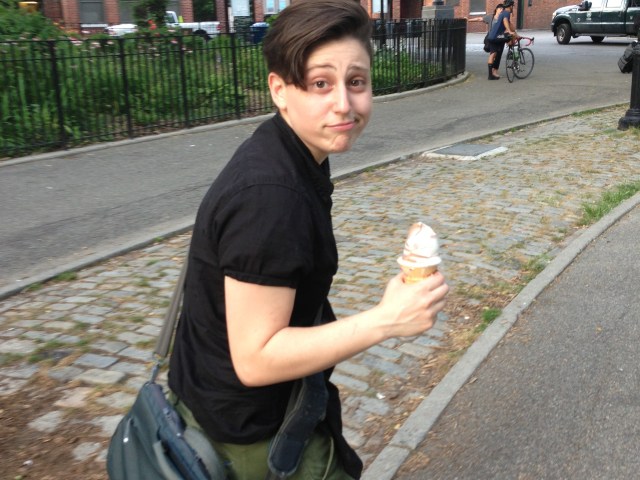
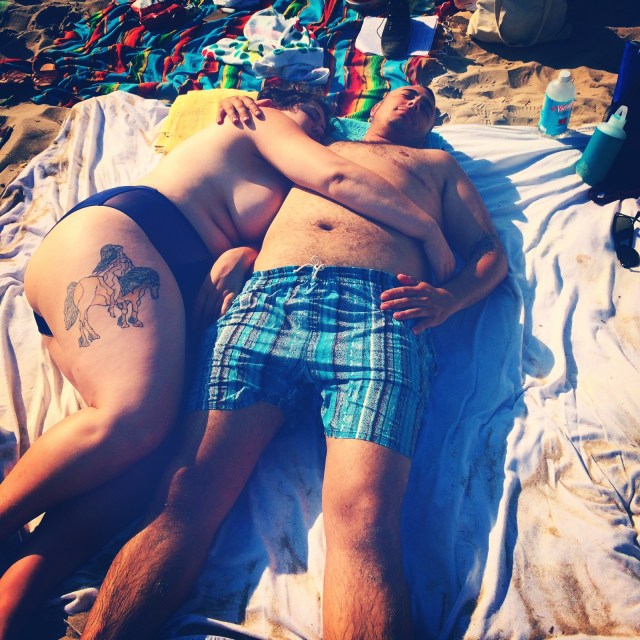
Fact is, I used to go to The Pride March every year, starting at age fifteen. I don’t remember exactly how old I was when I started to become disillusioned with it, but I do remember why. A bus barreled past me, a vodka ad plastered across the side of it showcased two men, smiling. The ad’s tagline: out of the closet and into the bar. As a teenager, I didn’t have the words to articulate why this saddened me, wouldn’t still for years, but intuitively my heart already felt heavy.
Now I know. I know that New York City’s Pride March was borne of political resistance, birthed from the historical Stonewall Riots of 1969. I know that the tagline that this company co-opted for its marketing campaign was derivative of the activist slogan “out of the closet and into the streets.” I know that “out of the closet and into the streets” is a brilliant slogan, incorporating both the collective invisibility and pain of the historical United States LGBT movement with the confrontational and unapologetic bravery of radical protest. I know that, thirty years later, this is the slogan that advertising executives tweaked slightly in order to sell vodka to gay people.
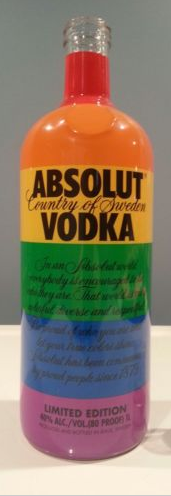
I know that alcohol companies don’t actually care about our community members past treating us as a marketable demographic. If they did, perhaps they would care that statistically we’re more likely to abuse substances than non-LGBTQ identified people, but they don’t. Why would they? It’s likely the reason that alcohol brands choose to allocate their advertising dollars towards floats and banners at Pride events.
I know that oftentimes as a young queer person “drinking” is synonymous with “community”, and I hate that. I remember what it’s like to be a kid and how frustrating it is that so many Pride celebrations revolve around getting fucked up and spending money that you might not have. I know that, at any age, visibility in Pride spaces is powerful. But more than that, I know how big the world can feel, particularly when you are young. To tack compulsory substance use and financial inaccessibility on top of it all feels cruel, irresponsible: exclusionary at best and dangerous at worst. I love our young people and I want them to feel like we care about them having space, sharing our space, existing.
Let’s put this aside for a moment, though, and talk about the significance of the vast array of corporations that shell out free goods us at these marches. Is this really where our movement has gone — where our identities are legitimized based on where we spend our capital? Companies take this grand scale opportunity to market to us. It’s not a value judgment, it’s an economic truth: corporations don’t care about oppression except for the business of selling it back to us. Why do we let them? Am I really supposed to feel validated that TD Bank and Wal-Mart march in a parade that’s intended to be about queer rights, or that Burger King wrapped a Whopper in a rainbow? I don’t. Is our collective bar really that low?
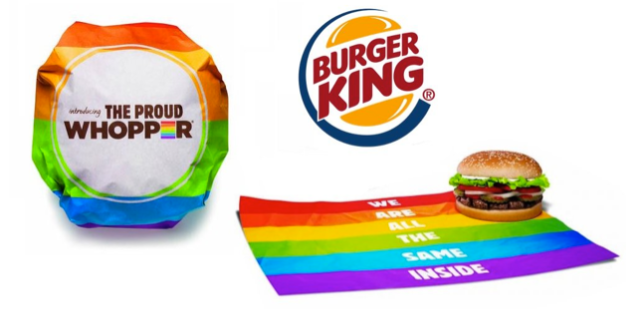
My intention isn’t to generalize or attack people who chooses to attend or finds a fulfilling experience in events like this. There are a lot of different things going on for NYC Pride — hundreds of groups that march along the route, thousands of people that attend. A lot of these people are really great! I’ve marched with some of them and cheered them on in solidarity over the years. This year, in addition to my beach-going on Sunday, I even performed at a Pride-related event — one that was all ages, in a historically radical community space — but it didn’t revolve around drinking and proceeds went directly back into the community. It was such a positive experience, and I wish we could apply more of those principles to the large-scale Official event, but perhaps it’s gotten too large. Perhaps it’s impossible for us all to feel represented at any event of this magnitude.
I also want to say that I recognize the mere existence of some sort of queer visibility on this level as a positive thing, acknowledge that it is a privilege to not be persecuted for organizing. I know that if I find any aspect of the march uncomfortable, I can do exactly what I did, which is choose not to go to it.
Alternately, I can foresee a future of change from within. That, going forward, the march and the festival can be what we make it, that we can represent ourselves by showing up. I just didn’t feel up to it this year. You know what I did feel up to? Rockaway Taco. Sand in my pockets. Contemplating my inconsequential existence and the insignificance/significance of my identities and narratives relative to the vastness of the Atlantic Ocean.

I’m not saying that Pride Sunday, as so many people know and love it, should cease to exist. I just wish that we would revisit its roots and start talking critically about the ways in which it’s serving us versus the ways in which it’s failing us. Until then, I’ll see you at the beach.
